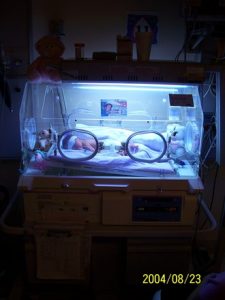Gaining a better understanding of pre-term infant brain injury can help reduce future incidents and improve outcomes for preemies. That’s why researchers at Boston Children’s Hospital, Harvard Medical School and NFANT Labs (an Atlanta-based company) are teaming up. The trio announced they would be collaborating to delve into the question of how neonatal sucking patterns could be an indication of brain development. If abnormal feeding patterns are proven to be an early indicator of an underlying brain injury, then doctors, nurses and other caregivers could take note – and quicker action to address it, ultimately improving outcomes.
Detecting a newborn brain injury early on is difficult. The current brain injury technology we have developed isn’t sensitive enough to pick up potential issues for babies that young. Even equipment that could work tends to be far too expensive for practical use on a regular basis. Prior research has established some type of connection between the way a baby sucks early on and later neurodevelopmental outcomes. A better understanding of this could help doctors detect brain abnormalities faster, which can mean initiating a number of early interventions.
Every year, some 500,000 infants in the U.S. are born premature. Of those, 60,000 babies are born weighing less than 3.3 pounds. Unlike in decades past, most of these babies will survive. However, preventing brain damage in these infants is often a challenge. So while these children are living, the rates of developmental disabilities and cerebral palsy stemming from brain injury are on the rise. Continue reading
 Boston Personal Injury Attorney Blog
Boston Personal Injury Attorney Blog

